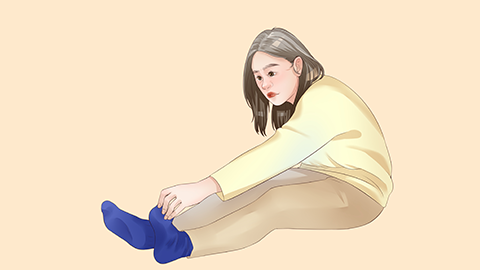How to relieve leg cramps in pregnant women
Generally, leg cramps in pregnant women may be caused by increased calcium demands during pregnancy, increased burden on the legs, cold exposure, excessive fatigue, hypocalcemia, and other factors. It is recommended to seek timely medical consultation to identify the underlying cause and, under a doctor's guidance, relieve symptoms through general treatments, medications, etc. A detailed explanation is as follows:

1. Increased calcium demand during pregnancy: The growing fetus requires substantial calcium. If the expectant mother's body lacks sufficient calcium, it may increase neuromuscular excitability, leading to leg cramps, which often occur at night. Consuming calcium-rich foods such as milk, soy products, and dark green vegetables daily, and ensuring adequate calcium intake, can help reduce the occurrence of cramps.
2. Increased burden on the legs: As pregnancy progresses, the enlarging uterus may compress blood vessels and nerves in the lower limbs, affecting circulation and causing leg muscle spasms and cramps. Elevating the legs during rest to promote blood return, avoiding prolonged standing or walking, and wearing comfortable flat shoes can help reduce the burden on the legs.
3. Cold exposure: Cold temperatures can cause muscle contractions and spasms, leading to cramps, especially during cold nights. Keeping the legs warm, covering adequately with blankets while sleeping, avoiding direct exposure of the legs to air conditioners or fans, and gently massaging the calf muscles after cold exposure can help relieve cramp symptoms.
4. Excessive fatigue: Prolonged walking, standing, or engaging in physical activities can fatigue the calf muscles, leading to cramps, often accompanied by leg pain. Managing activity levels reasonably to avoid overexertion, soaking feet in warm water for 10–15 minutes after activity, and gently massaging the calf muscles can help relax them and reduce cramps.
5. Hypocalcemia: Insufficient calcium intake or poor calcium absorption in pregnant women can lead to decreased blood calcium levels, causing frequent leg cramps, possibly accompanied by fatigue and leg weakness. Patients should follow medical advice to take calcium supplements such as calcium carbonate D3 tablets, calcium gluconate tablets, or vitamin D calcium chewable tablets, along with vitamin D to enhance calcium absorption and alleviate cramp symptoms.
When experiencing leg cramps during pregnancy, immediately straighten the leg and slowly stretch the top of the foot to relieve muscle spasms. Maintaining a regular sleep schedule, avoiding staying up late, and engaging in mild exercises such as walking or yoga can strengthen leg muscles, reduce cramps, and support a healthy pregnancy.






